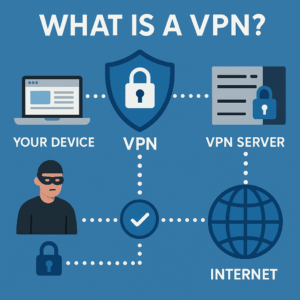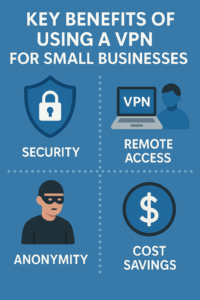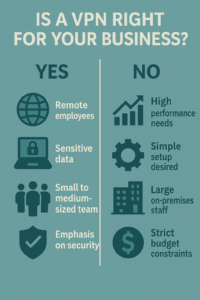Is a VPN the Right Choice for Your Small Business?
- Phone: +1(833)PHX-Geek
- 712 H St NE Suite 1904 Washington, D.C. 20002
Are you looking to come to Toast POS? Follow this link to sign up and get a free quote from your local Toast Rep. They will come out to your restaurant, and give you a free, no obligation quote.
Introduction
Virtual Private Networks (VPNs) are specialized tools designed to create secure connections over the internet. They encrypt your data, ensuring that sensitive information remains protected from unauthorized access. VPNs work by routing your internet connection through a private server, masking your IP address and making your online actions more difficult to track.
For small businesses, understanding how VPNs function is crucial. By establishing a secure connection, employees can access company resources remotely, ensuring that data remains confidential. This is particularly important for businesses that manage sensitive customer information or proprietary data, as it minimizes the risk of data breaches.
Moreover, VPNs can help small businesses maintain compliance with various regulations regarding data protection. Knowing how to implement a VPN effectively can provide significant security advantages while also enhancing overall operational efficiency.
One of the major advantages of using a VPN for your small business is enhanced security. By encrypting data transfers, VPNs help safeguard sensitive information from potential cyber threats. This is especially important for businesses that operate in industries such as finance or healthcare, where data protection is paramount.
In addition to security, VPNs also facilitate remote work. Employees can securely access company networks from anywhere, which is increasingly important in a world where remote work is becoming the norm. This flexibility can lead to increased employee satisfaction and productivity, as team members are no longer tied to a physical office location.
Lastly, VPNs can improve internet performance by bypassing bandwidth throttling imposed by Internet Service Providers (ISPs). This means that employees can experience smoother and faster connections, particularly when accessing cloud applications or video conferencing tools.
While VPNs offer numerous benefits, they are not without their drawbacks. One potential issue is the cost associated with setting up and maintaining a VPN service. For small businesses with limited budgets, this can be a significant consideration. It's essential to evaluate whether the investment will yield sufficient returns in terms of security and operational efficiency.
Another challenge is the complexity involved in managing a VPN. Small businesses may lack the technical expertise required to configure and troubleshoot the system effectively. This can lead to potential downtime or security vulnerabilities if the system is not monitored closely.
Finally, using a VPN can sometimes slow down internet speeds. While this varies depending on the service provider and the type of VPN, it's essential to choose a reputable provider that offers optimized speeds to ensure that employee productivity is not hindered.
When considering whether a VPN is the right choice for your small business, it's essential to weigh the pros and cons carefully. Evaluate your business's specific needs, particularly regarding data security and remote access. If your operations involve handling sensitive customer information or proprietary data, a VPN may be a sound investment.
Additionally, assess your budget and the technical resources available to your team. If you can allocate the necessary funds and expertise, the security benefits of a VPN could significantly outweigh the initial costs.
In conclusion, a VPN can be a valuable asset for small businesses, offering enhanced security, flexibility for remote work, and improved internet performance. However, it's essential to conduct a thorough analysis before making a decision, ensuring that the benefits align with your business goals.
Conclusion
Ultimately, the decision to implement a VPN should be based on a careful evaluation of your business's unique needs and circumstances. By considering both the advantages and potential challenges, you can make an informed choice that supports your overall business strategy.